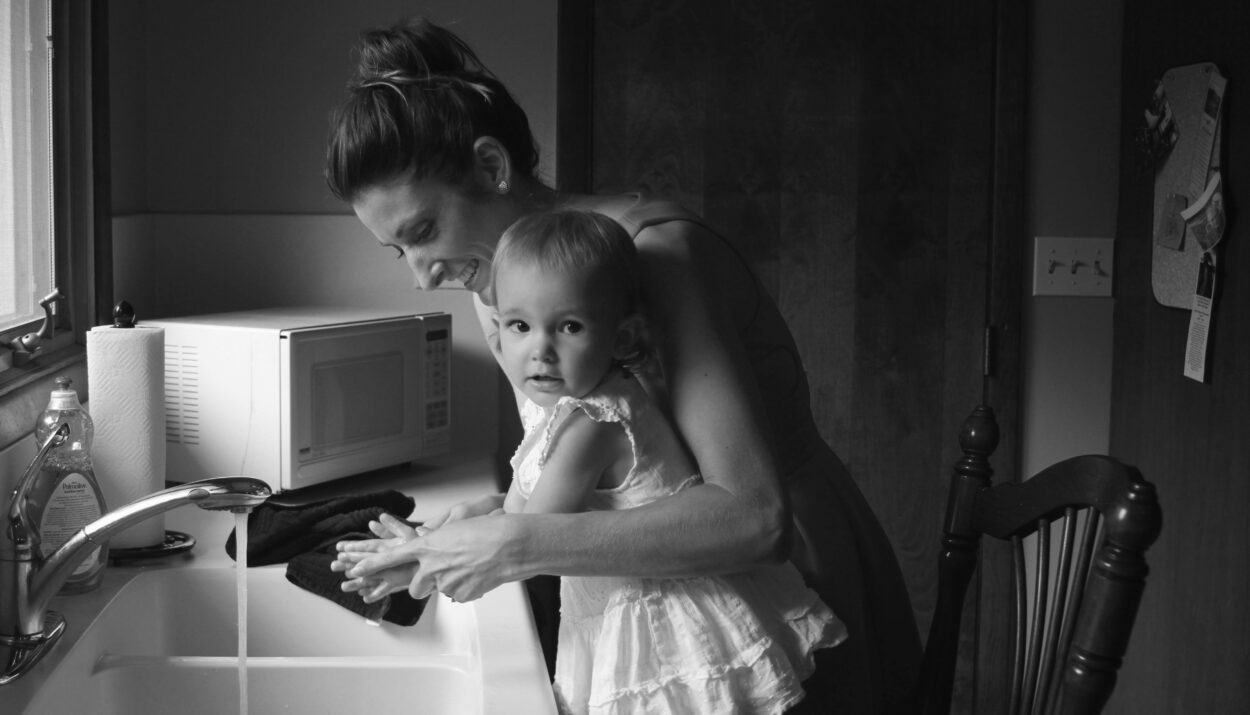Life with a preschooler can feel busy and unpredictable. Between snack times, play sessions, and unexpected messes, the idea of getting housework done might seem impossible. But here’s the secret many parents discover: preschoolers love helping out.
Yes, including your preschooler in daily chores might take a little more time and patience, but the rewards are worth it. Your child learns new skills, becomes more confident, and enjoys quality time with you. And you get a little help around the house—even if it’s not perfect.
In this blog post, we’ll explore how to involve your preschooler in daily chores, the benefits of doing so, which tasks are age-appropriate, and how to make it all feel simple and fun.
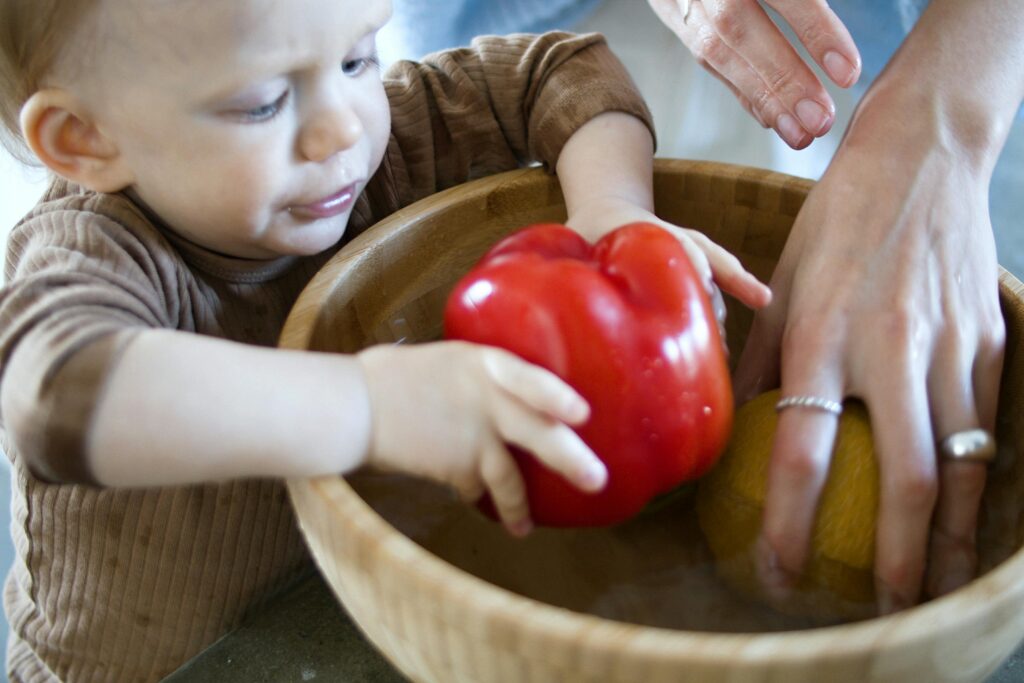
Why Include Preschoolers in Chores?
Preschoolers are naturally curious and love copying adults. They often ask, “Can I help?”—and even if their version of helping is clumsy or messy, it’s a sign they want to be included.
When you give your preschooler small responsibilities, they feel proud and important. Helping with chores also teaches them life skills that will serve them for years to come.
Here are some important reasons to start early:
Builds Responsibility
Children learn that everyone in the family has a role to play. Even small jobs teach them that their efforts matter.
Encourages Independence
By doing tasks on their own, preschoolers begin to feel capable and independent. This builds self-esteem.
Develops Motor Skills
Chores like folding laundry or wiping a table help strengthen fine motor skills, coordination, and balance.
Strengthens Parent-Child Bond
Working together gives you time to connect, talk, and share little moments.
Creates Routine
Daily chores help create structure and routine, which is important for young children.
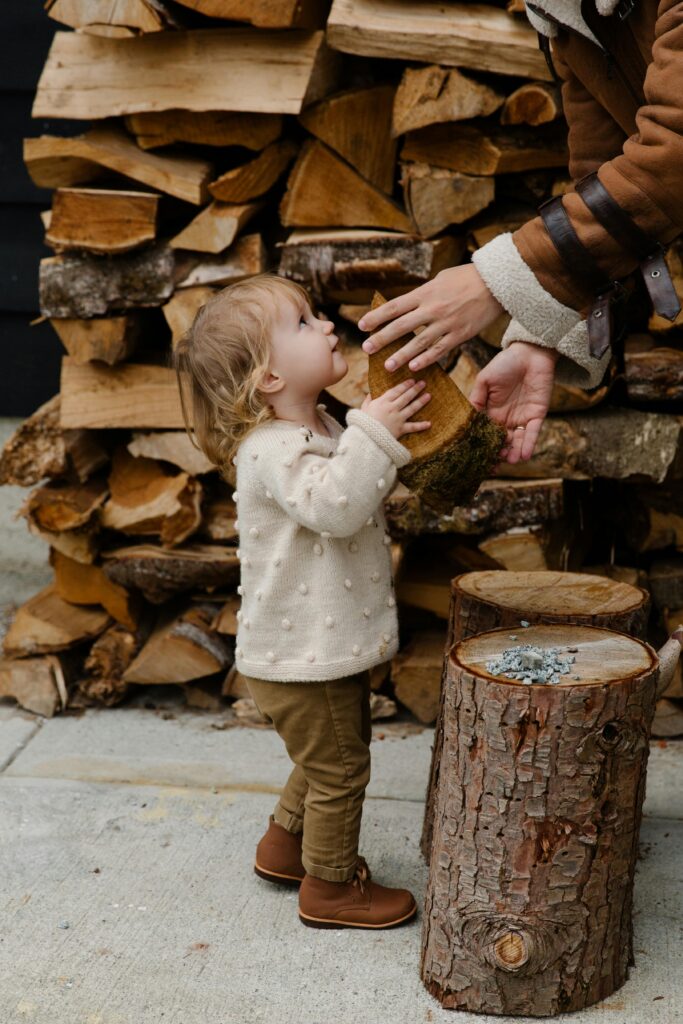
What Chores Can a Preschooler Do?
Your preschooler doesn’t need to take on big jobs. Even the smallest tasks can be meaningful when done regularly. Here are some simple chores that are safe and appropriate for children aged 3 to 5.
Morning Tasks
- Making their bed by pulling the blanket up
- Putting pajamas in the laundry basket
- Brushing teeth with help
- Wiping their face and hands after breakfast
- Helping pack snacks or water bottles
Daytime Tasks
- Picking up toys after play
- Putting books back on shelves
- Feeding pets with supervision
- Watering plants using a small cup or watering can
- Helping load laundry into the washing machine
- Sorting clothes by color or matching socks

Evening Tasks
- Helping set the table with napkins and spoons
- Wiping the table after meals
- Folding small towels or washcloths
- Placing shoes neatly by the door
- Choosing clothes for the next day
- Tidying up the play area before bedtime
Not all tasks have to be done every day. Choose a few simple ones that fit your family routine.
How to Make Chores Fun and Easy
Preschoolers don’t see chores the same way adults do. For them, wiping a table or putting away toys can feel like play—if it’s done the right way. Here are a few ideas to keep things light and enjoyable.
Keep It Short
Preschoolers have short attention spans. Instead of expecting them to clean for long periods, keep tasks short and simple.
Give Them a Choice
Offer two tasks and let your child pick one. For example, “Would you like to water the plants or fold the towels?” This helps them feel more in control.

Use Routine
Doing the same tasks at the same time each day helps your child know what to expect. Morning tidy-up, lunchtime help, and bedtime cleanup can become habits.
Show and Tell
Demonstrate the task first, then guide your child through it. For example, fold one towel together before letting them try on their own.
Offer Praise
Celebrate the effort, not the result. A simple “You did such a great job helping today” goes a long way in building your child’s confidence.
Be Patient
Mistakes will happen. Towels might be crumpled instead of folded, or water might spill. That’s part of the learning process.
Sample Daily Chore Routine with a Preschooler
Here’s a simple example of how you can add small chores into your child’s daily routine. You don’t need to follow this exactly—just use it as inspiration.
Morning
- Help make the bed
- Put dirty clothes in laundry basket
- Brush teeth and wipe face
- Bring dishes to the sink after breakfast
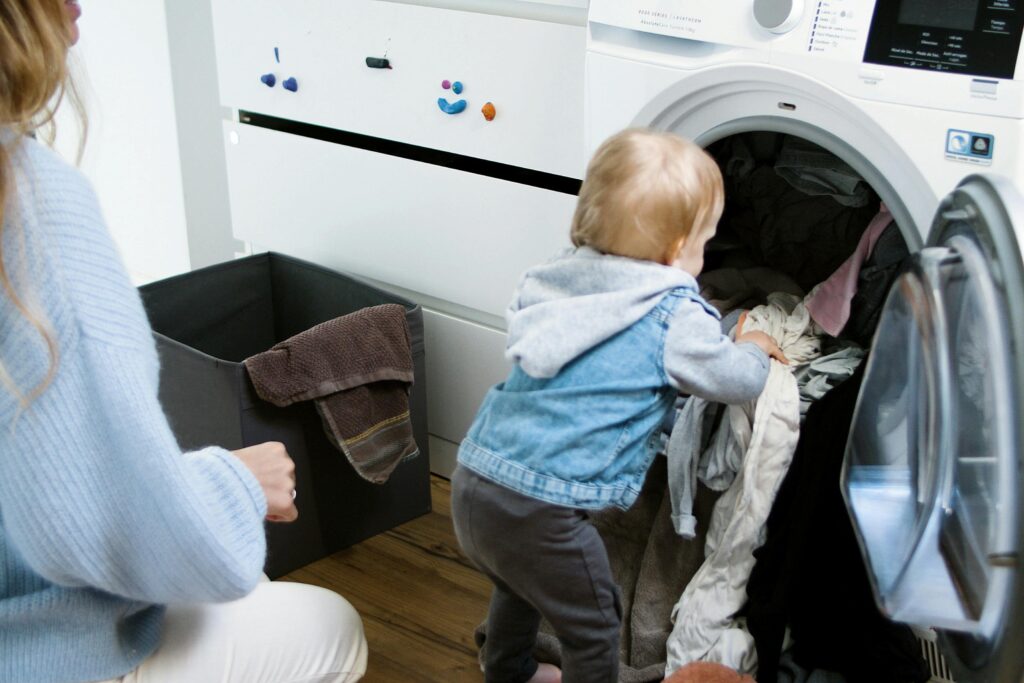
Late Morning
- Help sort laundry (colors and whites)
- Water plants
- Feed the pet (with help)
Afternoon
- Clean up toys after playtime
- Put books back on shelf
- Wipe the table after lunch
Evening
- Help set the table for dinner
- Fold small towels
- Pick up toys before bath time
- Choose clothes for the next day
Try adding just one or two chores at first. As your child becomes more comfortable, you can slowly include more.
Tips for Success
- Start with simple tasks that your child can do safely
- Use clear, short instructions
- Avoid perfection—let them do it their way
- Use positive words and smile
- Create a visual chart or list with pictures of chores
- Stay consistent—daily repetition helps develop habits
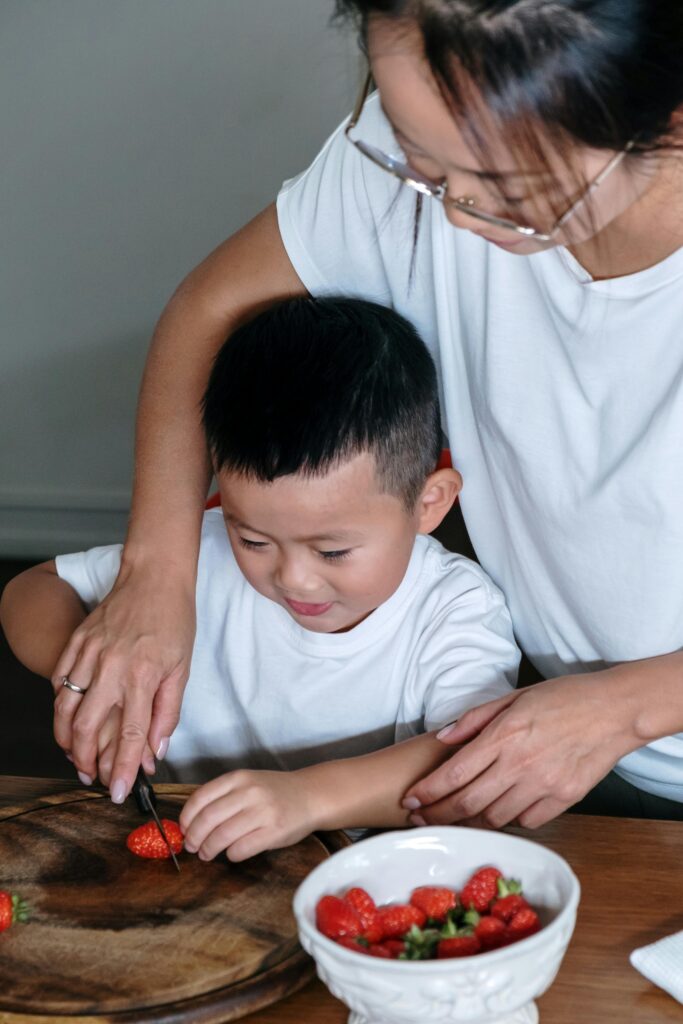
Common Challenges and What to Do
It’s normal to run into challenges when doing chores with a preschooler. Here are a few common ones and how to handle them.
My Child Gets Bored or Distracted
Keep the task short, and stay nearby. You can also talk or sing while doing the task together.
My Child Doesn’t Want to Help
Instead of forcing, invite them gently: “Can you be my helper?” Offer choices and let them take the lead on what they enjoy.
They Make More Mess
Yes, that will happen—but don’t worry. Every mess is a chance to teach. Stay calm and guide them to fix it.
They Do the Task Wrong
That’s okay. At this age, the goal is learning and trying, not perfection. Praise their effort, and help them improve over time.
Frequently Asked Questions
How early can I start chores with my child?
You can start as early as age 2 or 3 with very simple tasks like picking up toys or wiping a spill.
How many chores should a preschooler do each day?
Three to five small chores spread throughout the day are enough. Don’t overwhelm them.
Should I give rewards for doing chores?
Praise is the best reward at this age. You can also use sticker charts or family “helper of the week” routines, but avoid giving money for chores at this stage.
What if my child refuses to do a chore?
Don’t turn it into a battle. Stay calm, offer choices, and try again later. The goal is to build routine, not pressure.
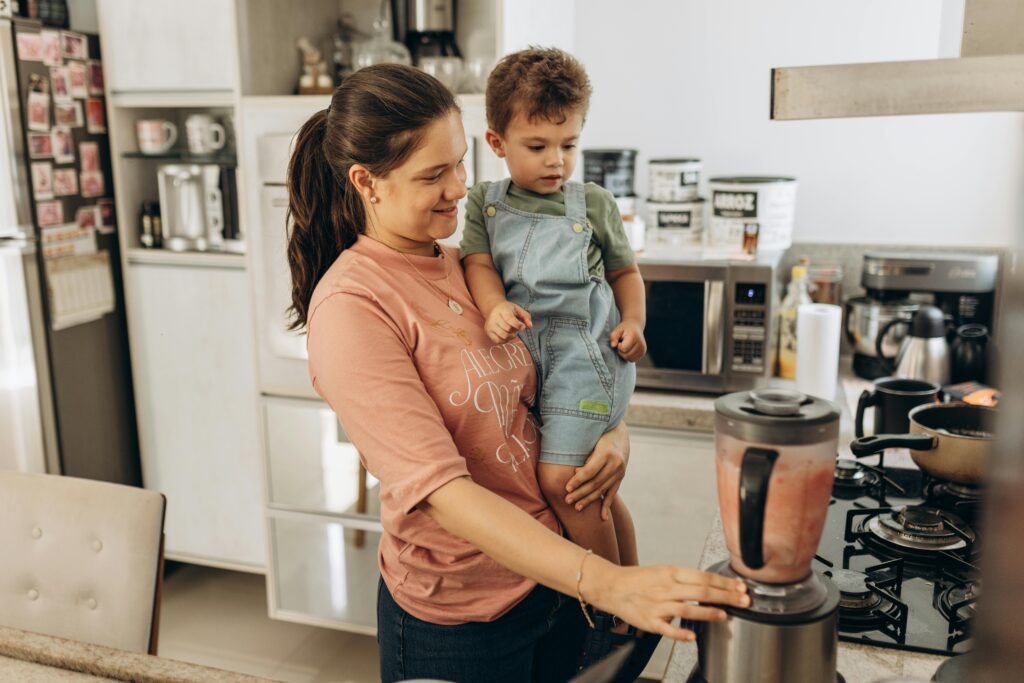
Final Thoughts
Chores might seem like just another item on your to-do list, but when shared with your preschooler, they become something much more meaningful. These small tasks teach life skills, build confidence, and create special bonding moments between you and your child.
Start small. Be patient. Celebrate the progress. Over time, your little one will go from “helping” to actually helping—and they’ll feel proud to be part of the family team.



